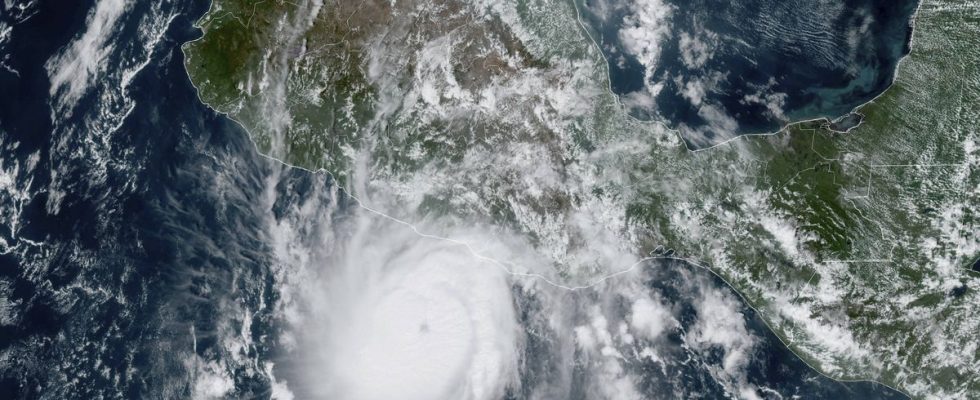In just a few hours, it went from a classic tropical storm to a “potentially catastrophic” monster. The hurricane that threatens Acapulco, a tourist hotspot on the Pacific coast in western Mexico, is “extremely dangerous,” the American National Hurricane Center (NHC) warned on Tuesday, a few days after Norma hit.
Hurricane Otis was rated category 4 out of 5 on the Saffir-Simpson scale. “Otis is forecast to be a potentially catastrophic Category 5 hurricane” when it makes landfall in the Acapulco area, the NHC said in its report.
The cyclone was on Tuesday evening 135 km at sea south of Acapulco, carried by winds of a maximum of 230 km/h, and was expected to make landfall overnight.
Schools closed
In Acapulco, soldiers were already deployed in anticipation of Otis’ arrival on the waterfront. Schools were closed by order of the local government in the state of Guerrero, where Acapulco is located.
“There are no tours today, the port is closed to tourists,” local tour boat operator Carolina Torres said in an AFPTV video. ” It’s very strange. It (Hurricane Otis) is supposed to be right in front of us, and it looks very calm. So we’re hoping it will dissipate a bit. Let’s hope so, because if it affects us, it will be very serious for us,” she added.
Governor Evelyn Salgado insisted on the importance of coordination between the authorities and the armed forces for “the well-being of residents and avoiding risks”.
200 deaths in 1997
Acapulco was hit on October 9, 1997 by Hurricane Paulina, which made landfall as a category 4. Paulina killed more than 200 people, one of the most serious natural disasters for Mexico outside of the earthquake.
Last week, Hurricane Norma killed three people a little further north in the state of Sinaloa. Norma made landfall twice, first in the Baja California peninsula, then in the state of Sinaloa.
Caught between the Pacific and the Gulf of Mexico, Mexico is exposed to hurricanes during the season which runs from May to October-November. A dozen depressions per year are likely to turn into more or less devastating hurricanes depending on their point of entry.
The most powerful ever recorded, Patricia, in October 2015, with winds of 325 km/h, however, only caused material damage because it entered the territory through an uninhabited mountainous area.
In September 2013, Hurricane Ingrid in the Gulf and Tropical Storm Manuel in the Pacific simultaneously hit Mexico. “Their interaction constituted a historic phenomenon that had not occurred since 1958,” according to the authorities who recorded 157 deaths including victims of landslides.

